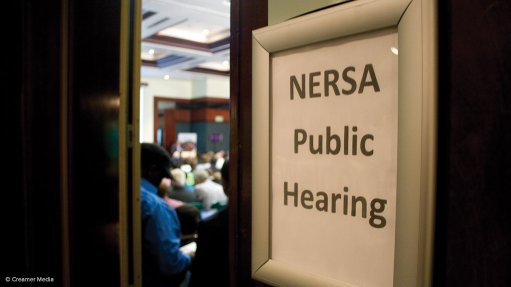ICT crucial to meeting post-2015 development agenda
The use of information and communication technology (ICT) was critical to meeting the targets set post the Millennium Development Goals (MDGs), Ericsson CEO and president Hans Vestberg said on Thursday.
Speaking on the second day of the Ericsson Business Innovation Forum, in Sweden, he stated that ICT would be an enabler to meet the targets of the 17 proposed goals that would follow on the conclusion of the MDGs in 2015.
While significant gains had been made in progressing the MDGs, more had to be done as many of the ambitions envisaged in 2000 had not been met.
The new goals, which comprised 169 targets, were based on an outcome document completed by the Open Working Group of Sustainable Development Goals.
The post-2015 agenda aimed to end poverty; end hunger and improve nutrition, while achieving food security and promoting sustainable agriculture; ensure healthy lives and promote wellbeing for all; ensure inclusive and equitable quality education and promote lifelong learning opportunities for all; and achieve gender equality and empower all women and girls.
The United Nations (UN) also planned to ensure availability and sustainable management of water and sanitation for all; ensure access to affordable, reliable, sustainable and modern energy for everyone; promote sustained, inclusive and sustainable economic growth, full and productive employment and decent work for all citizens; reduce inequality within and among countries; and build resilient infrastructure, promote inclusive and sustainable industrialisation and foster innovation.
The Post-2015 priorities would also see the development and promotion of inclusive, safe, resilient and sustainable cities and human settlements, as well as the establishment of peaceful and inclusive societies with access to justice for all and effective, accountable and inclusive institutions at all levels.
Further ambitions comprised sustainable consumption and production patterns, the strengthening of the means of implementation and the revitalisation of the global partnership for sustainable development.
Finally, urgent action would be taken to combat climate change, to conserve and make sustainable use of oceans, seas and marine sources, to protect, restore and make sustainable use of terrestrial ecosystems and forests, and to halt and reverse land degradation and biodiversity loss.
ICT, which was emerging as a tool to tackle the everyday challenges that had necessitated the development of the goals, was only incorporated in four of the 17 goals, and Vestberg was lobbying the UN to have ICT entrenched in every goal, as it was an enabler to progress the targets of the new agenda.
“It will not fix everything,” he commented; however, it could play a significant and positive role.
ICT has become an essential tool for enhancing access to education, healthcare and other public services, information, finance and knowledge, while creating jobs, protecting the environment, mitigating natural disaster risks and ensuring sustainable use of natural resources and food production.
Citing an educational example, Vestberg said the distribution of electronic textbooks, through tablets and computers, were cheaper and faster than the distribution of traditional paper textbooks, while connecting to feature-rich e-learning facilities worldwide could simulate further learning.
African governments understood this and were willing to consider the integration of ICT in their own agendas, Vestberg commented.
Further, about 150 countries have developed their own broadband plans, which was a “start” to ensuring the first step of connecting ICT and leveraging its “significant” social impact.
Doubling the speed of broadband led to, on average, 0.3% higher national gross domestic product (GDP) growth, while a 1% hike in broadband penetration led to a 3.8% rise in the number of start-up businesses. A 10% increase in broadband penetration delivered a 1% increase in GDP growth.
Vestberg believed Africa’s struggling connection to the world had less to do with capacity and more to do with the cost of Internet-enabled devices, such as smartphones.
It was suggested that a $10 drop in the price of a smartphone would allow 100-million people to buy an Internet-enabled handset and connect to the Internet.
He explained that, throughout Africa, there was some form of connectivity – albeit older technology such as second-generation networks – however, it was enough to ensure the population “gets online”.
The reverse was true of developed countries, such as the US, which struggled more with capacity as many more people were online and were able to afford feature-rich Internet-enabled devices.
Comments
Press Office
Announcements
What's On
Subscribe to improve your user experience...
Option 1 (equivalent of R125 a month):
Receive a weekly copy of Creamer Media's Engineering News & Mining Weekly magazine
(print copy for those in South Africa and e-magazine for those outside of South Africa)
Receive daily email newsletters
Access to full search results
Access archive of magazine back copies
Access to Projects in Progress
Access to ONE Research Report of your choice in PDF format
Option 2 (equivalent of R375 a month):
All benefits from Option 1
PLUS
Access to Creamer Media's Research Channel Africa for ALL Research Reports, in PDF format, on various industrial and mining sectors
including Electricity; Water; Energy Transition; Hydrogen; Roads, Rail and Ports; Coal; Gold; Platinum; Battery Metals; etc.
Already a subscriber?
Forgotten your password?
Receive weekly copy of Creamer Media's Engineering News & Mining Weekly magazine (print copy for those in South Africa and e-magazine for those outside of South Africa)
➕
Recieve daily email newsletters
➕
Access to full search results
➕
Access archive of magazine back copies
➕
Access to Projects in Progress
➕
Access to ONE Research Report of your choice in PDF format
RESEARCH CHANNEL AFRICA
R4500 (equivalent of R375 a month)
SUBSCRIBEAll benefits from Option 1
➕
Access to Creamer Media's Research Channel Africa for ALL Research Reports on various industrial and mining sectors, in PDF format, including on:
Electricity
➕
Water
➕
Energy Transition
➕
Hydrogen
➕
Roads, Rail and Ports
➕
Coal
➕
Gold
➕
Platinum
➕
Battery Metals
➕
etc.
Receive all benefits from Option 1 or Option 2 delivered to numerous people at your company
➕
Multiple User names and Passwords for simultaneous log-ins
➕
Intranet integration access to all in your organisation





















